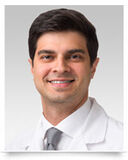“Any Questions For The World’s Leading Heart Valve Specialists?” Asks Adam
By Adam Pick on September 28, 2011
Great news everybody!
I am attending the Heart Valve Summit in Chicago. While there, I will have a special opportunity to ask your questions directly to valvular specialists including Dr. Gillinov, Dr. Adams, Dr. McCarthy, Dr. Martin, Dr. Bolling, Dr. Accola and more. Their responses will be filmed and posted at this blog.

So… If you have a question — about anything related to heart valve disorders, symptoms, surgical approaches or valve replacement devices — please click the “ASK YOUR QUESTION” button above, email me directly or scroll down to leave a comment. I will do my best to get your questions answered as soon as possible.
Keep on tickin!
Adam
|
Cathy says on October 3rd, 2011 at 8:36 am |
|
I am 61 and have asymptomatic mitral valve regurgitation. Eighteen years ago I had my aortic valve replaced ( rheumatic fever hx). I learned last week that the mitral valve regurgitation has progressed from the moderate-severe to the severe range. They are now suggesting that I have surgery within 6 months. I feel great;I do either either weight, spinning or body pump classes daily. During the day I will admit that I sometimes feel a little tired but I try to increase my activity when I have that feeling. That normally does the trick. Now that surgery has been mentioned I’m relieved. I also am noticing that I might be tired a little more than I admitted. Have I been in denial of my symptoms? |
 |
|
Barbara Tesno says on October 3rd, 2011 at 10:53 pm |
|
What are the indications for anticoagulation therapy following mitral valve repair surgery? |
 |
|
Anne Latorra says on October 4th, 2011 at 12:23 pm |
|
My husband had open heart surgery almost 10 months ago and he is still having upper chest pain when trying to get out of bed or straining his chest. Is this normal? Are there exercises that would be helpful. Thank you |
 |
|
Janelle Kimball says on October 4th, 2011 at 2:37 pm |
|
Adam, Most everything I read on the internet deals with a singular leaking valve. At age 64, I was recently diagnosed with 3 valves leaking – aortic insufficiency, grade 2+, triscupid regurgitation, grade 2+, and a mitral valve regurgitation , grade 3+. I have shortness of breath and am very lite headed at times. I am waiting for my cardiologist consultation. What are the chances that someone has 3 valves leaking but still has a healthy heart? Should I be overly concerned? Thank you for considering this question. Janelle Kimball |
 |
|
Karen Evans says on October 5th, 2011 at 1:18 am |
|
Hello, I ihad spiking blood pressure all summer. I have experienced palpitations, shortness of breath, chest pain, nausea with this.I also have fluttering in my heart.(I do have sleep apnea, and this helped some shortness of breath, however not all).My echo reads as follows “This study was quite difficult from a technical standpoint secondary to patient obesitywith the apical and subcostal views ben particulary difficult to obtain. Standard m-mode chamber dimensions and wall thicnesses are within normal range. The aortic valve is trileaflet and functions normally. The mitral valve leafletss are midly thickened without evidence for systolic prolapse.The tricuspid and pulmonic valve appear structurally normal.Left ventricular regional wall motion is normal with LVEF calcualted at 75% Right venticular systolic function also appears normal. There is no evidence for intracrdiac masses or thrombus and no valvualr vegetations are seen within the technical limitations of this study. No significant pericardial abnormalities are identified. Doppler interrogatin reveals the presence of mild mitral insufficiency and mild tricuspid insufficiency with estimated pulmonary artery systolic pressure jsut above the normal range at 32mm Hg. What do you think? |
 |
|
Marie says on October 5th, 2011 at 4:25 am |
|
Hi everone! My brother is a 25 year old male who has had 2 open heart surgerys so far. His last operation was the Ross procedure 10 years ago. Now the Ross has failed and he has to have surgery again. What are his options? A mechanical valve and warfain is not a very attractive option? |
 |
|
Judy Caldwell says on October 5th, 2011 at 10:20 am |
|
I would like to speak with someone who has had robotic mitral valve repair and/or Cox cryo maze for afib. I have extreme anxiety still almost 5 months post surgery. Docs say my surgeries went fine and I am fixed. Just want to know if anyone else experienced this. |
 |
|
Gail says on October 5th, 2011 at 4:16 pm |
|
Just over 2 years ago I had a serious accident (50′ fall) that resulted in heart damage due to blunt force trauma. I now have a Grade 4 diastolic murmur and aortic regurgitation. My echocardiogram from April 2011 stated: 1. Good quality echocardiographic study Thanks to my stability in compensatory mode and my asymptomatic status (e.g., 13 mile hikes with 4000′ elevation gain, playing hockey, etc.) I am now getting annual echocardiograms. I have several questions: 1. Is there any chance my heart can permanently compensate or is aortic valve replacement inevitable? 2. Previous echo reports: March 2010 “no aortic stenosis, concern for possibility of partially flail aortic leaflet”; Oct 2010 “thickening of aortic leaflets”; Apr 2011 “mild calcification”. Is the calcification likely due to healing of the damaged leaflets? 3.Are damaged leaflets more likely repairable (rather than requiring valve replacement)? Or would the long interim between injury and surgery (if necessary) negate possibility of repair? 4. Do I now have stenosis AND regurgitation? 5. Given my very active, healthy lifestyle, is there any chance that I wouldn’t notice a gradual onset of symptoms, or will I KNOW when the time for surgery is here? 6. I’ve seen the precipitous drop in survival curves once heart enlargement goes above a threshold or the patient becomes symptomatic. If symptoms of congestive heart failure become apparent, how quickly do I need to travel to see my cardiologist (hours/days/weeks/months)? Thanks! Now that I’m on a once-a-year check up, it’s a lot to have in the back of your mind without regular feedback that all is OK. |
 |
|
Dorothy says on October 5th, 2011 at 4:57 pm |
|
Hello again, Adam, and thank you! From what I’ve read, it seems that at this time some of the newer (i.e. less invasive)valve surgical techniques are recommended for those who are not candidates for the traditional open-heart surgery (perhaps too ill or with other complicating factors??). Why wouldn’t these newer techniques be better for ALL valve surgical patients rather than subjecting anyone to the more traditional, highly more invasive approaches? If the newer approaches are proving successful, I don’t understand why anything else is still being used. (I’m sure there’s a fascinating explanation!) Many thanks, |
 |
|
Travis says on October 6th, 2011 at 3:55 pm |
|
Hi Adam. I am a 38 year old Paramedic/Firefighter in California with moderately sever Aortic Insufficiency due to two cusps being fused. I’m very involved in my own care and very knowledgeable about what is going on with it. I get quarterly check-ups and semi-annual echos. My last echo (June 2011) shows me still well compensating with an end diastolic volume just barely outside normal (around 60mm) and a normal ejection fraction. I do have a little mitral regurg because my aortic jet pushes back against my mitral valve. The question I have is this: Is there any reason, related to my condition, that I should not train for and compete in a marathon? My cardiologist felt that there was no positive specific contraindication other than the process is generally hard on the body. I figure this is a great chance to get a knowledgeable second opinion. Someday I’ll have to get my valve replaced, but hopefully I’m still a ways out. Your book is great! I found it very informative and enlightening. Being in the medical field helps me stay in the know too, thankfully. |
 |
|
john bird says on October 7th, 2011 at 4:02 pm |
|
I’m a 69 y/o male.I had a mechanical aorta valve and 1 bypass in sept of 2010. |
 |
|
MARINA says on October 10th, 2011 at 7:58 pm |
|
Hello I just have my angiogram done last week and everything was fine until the Cardiogist found an extra artery and is working properly sending blood to my heart is this good? I have a hole in my heart plus Tricuspid is leaking.. please respond .. thanks |
 |
|
jack says on October 11th, 2011 at 3:54 am |
|
Hi Adam, Thanks very much for this oppurtunity.I am 31 years old recetly diagnosed with a Bicuspid aortic valve.I have severe aortic regurgitaion but I am asymtomatic.My LV systolic and diastolic demensions are normal and my EF is 62%.I know that some day I will need to have my aortic valve replaced or repaired. Wanted to ask you if there will be a point in the near future when bicuspid valves could be replaced over a catheter without an open heart surgery? |
 |
|
sherry chewning says on October 11th, 2011 at 8:35 am |
|
Hi |
 |
|
Saima Noreen says on October 12th, 2011 at 10:37 am |
|
I am heart patient by birth. MRV has been done 2 xtimes. There was hole at my birth. but at the age of 14, it was covered and Aortic valve failed. Open heart surgery done. it was again done in 2007. Now i m feeling pain which i did not feel in my whole before 2006. Dr say that stichthes in the internal chest opened and valve is leaking. no treatment is possible. |
 |
|
Adrienne Presgraves says on October 12th, 2011 at 11:50 pm |
|
Adam, I sent an email directly to your email address last evening, but am concerned that you may not read the same in time for the seminar. I genuinely want to find out if an exception for doing transcatheter aortic replacement can be made under the circumstances with my back complications. I will try to attach what I wrote last evening, and apologize for quite so much writing. Please ask if I could be considered a candidate, of course with my consent and understanding of the risk, to correct my heart issue(s) during these clinical trials with transcatheter valve replacement. I realize I am close to the point that I will need to do something sooner than later. Thanks so much! |
 |
|
Ramesh says on October 13th, 2011 at 10:24 am |
|
I am suffering from Rheumatic Heart Disease, and My Age is 30 Years. Request you to please guide me…. |
 |
|
Nancy says on October 13th, 2011 at 5:12 pm |
|
I am 58 years old. I had an bovine aortic valve replacement 6 years ago and now it has a mild leak. What causes this to happen? Where is it leaking? What is the reccomended surgery if needed? |
 |
|
trilok chand singla says on October 14th, 2011 at 5:39 am |
|
I m suffering from beat missing problem from 9 years . Nd i was done eps 2 months ago nd my problem is not solved please suggest me any treatment . |
 |
|
Dianna Johnson says on October 14th, 2011 at 12:08 pm |
|
Hi Adam, |
 |
|
Roxanne Portz says on October 20th, 2011 at 2:48 pm |
|
Am I the only person who had a palmontic valve repair at age two and at age 54 experience narrowing of the palmontic valve? 30% as of the last angioplasty |
 |
|
Tina says on October 20th, 2011 at 7:33 pm |
|
My father is 85 years old and diabetic who, 2 weeks ago, underwent a heart valve replacement. The surgery went well but he is going downhill in terms of his recovery since he left the hospital. He was always a healthy, active alert adult. Now, he has stopped eating, won’t/can’t exercise, stopped dressing himself, won’t talk – it’s like he has become a vegetable. Is this typical of a recovery? What is a typical recovery like for a man of his age? How should I handle this? |
 |
|
Bill F says on October 20th, 2011 at 8:26 pm |
|
Hi Adam, I had a mitral valve repair just under two years ago. The heart is doing great, absolutely no problems. I do have a problem with my sternum. It never healed properly. My surgeon says that this is the first non union of the sternum he has seen in over a thousand surgeries. Thankfully, he has scheduled a new surgery to fix it. Can anyone explain why this would have happened? My initial closure was with wires and this is still his preferred method for the upcoming surgery. Thx, Bill |
 |
|
kamaldeep says on October 26th, 2011 at 1:51 am |
|
hi |
 |
|
Denise says on November 1st, 2011 at 6:52 am |
|
Hi Adam. I had mitral valve repair in August 2010. They said everything went well , but here I sit everyday with more palpations then I did before surgery. I just got out of the hospital again for arterial fibrillation for the second time. I never had this before surgery… Why did it start 6months after surgery and now. I was rushed in the hospital 10/26/11 after boarding an airplane. My heart rate went from normal to 195. At the end of my flight they had an ambulance waiting. After being admitted 4 hours later my heart converted back. The first tome I had to have a cardioversion. My question is why is this happening after surgery and now they are thinking I need an ablation. |
 |
|
kevin bebla says on November 3rd, 2011 at 3:17 pm |
|
what is “vegatation” growing on a porcine aortic valve. 6 years post op? |
 |
|
chris says on November 16th, 2011 at 10:02 pm |
|
Will people with mechanical valves be able to get their real valves regrown in the future. |
 |
|
Davd M Luther says on December 3rd, 2011 at 8:01 am |
|
I need an aorta valve replacement surgury. I need to find a hospital in Southern WI including the Milwaukee Area that can give me the best chance of a successful outcome. Also I am interested doing it the most non-invasive way with the newest best technology. Would you be kind enough to tell me my best options for hospitals that fit that criteria I could investgate? Mabe the top three? |
 |
|
deborah brienza says on December 6th, 2011 at 12:13 pm |
|
My essentially asymptomatic 87 y.o. father (quite active, healthy – other than HTN, significant curving of spine -? osteoarthritis?))is found to have a completely failed valve (not sure which one) – it has been suggested that he will need open heart surgery at some point – he is leaning toward having it done while he is still relatively healthy – as he is asymptomatic (he is still actively taking care of calves on a farm!!) what would be the major risks of NOT having surgery?? Is stroke a big risk with or without surgery? Tahnk-you |
 |
|
Tim Purnell says on December 22nd, 2011 at 4:34 pm |
|
To David Luther: I had Dr. Daniel O-Hair who is great. robotically assisted is your best option if you can! |
 |
|
Lucy says on September 18th, 2012 at 1:40 pm |
|
I had aortic valve replacement in nov, 11. I have been doing OK but did not really care for the surgeon… My question is: If I should need any other heart surgery could I go to a different surgeon or would I have to go back to the same one.. I know it’s my right to choose but would a different surgeon take me now? Thanks… |
 |
|
jake says on September 21st, 2012 at 8:41 pm |
|
Hello Drs. |
 |
|
Tim Jensen says on October 17th, 2012 at 7:35 am |
|
As I read about mitral valve repair, it is recommended to go to a reference surgeon; especially for complex valve issues such as bi-leaflet prolapse. Is there a list of these reference surgeons and their locations? How does a person know if a surgeon is a reference surgeon or not? |
 |
|
Zandile says on July 17th, 2013 at 9:02 am |
|
Hi Adam I was diagnosed with Rheumatic valvular heart disease when I was young, I have been attending all my regular check-up, however I would like to know how serious is my condition. From my recent health check-up my health report states; Aortic Valve: minimally thickened with mild eccentric AR Thank you |
 |
|
bob wickwire says on August 6th, 2013 at 11:24 pm |
|
After cabg/avr two years ago I developed what was termed as a-fib. A few months ago I was examined by an EP and the thought it might be atrial flutter instead but would have to perform ablation to be sure and if it was not flutter then another ablation procedure at a later date for a-fib. Hundreds of times I have “converted” my heart rate of about 100 by jerking my upper body. I discovered this by accident when hospitalized shortly after cabg/avr surgery with about 160 bpm. I fell asleep while being monitored and awoke with a “jerk”. Immediately, I was in sinus rythmm. The nurse said I converted myself. At that time I was on sotolol and was switched to antenolol but, for me, the rapid pulse is ALL about being overly tired, stressed or just plain ol worrying about something. Sometimes it comes on from exertion. I don’t think the antenolol helps at all. My dosage is 12.5mg morning and evening. |
 |
|
sanjeev says on August 24th, 2013 at 4:49 pm |
|
I have arotic regurgition mild.may be in some next few year i shall go for surgery.my problem is blood thinner. Can i go for bovine valve .is it safe if in futhur i go for reopration ..is any risk in second surgery.and what is success rate.. |
 |













